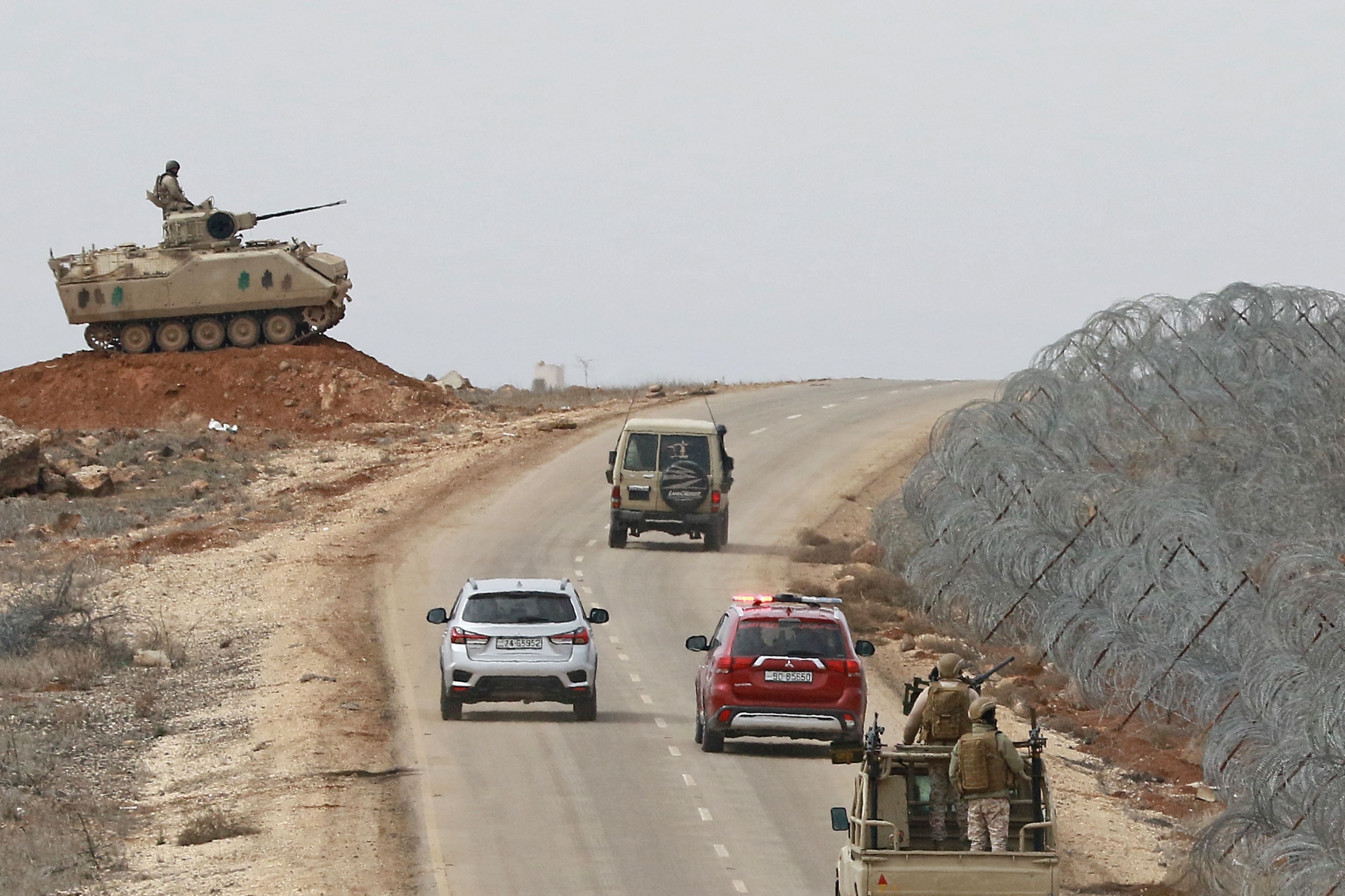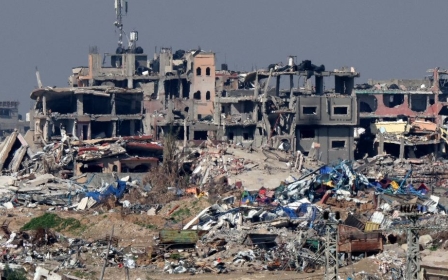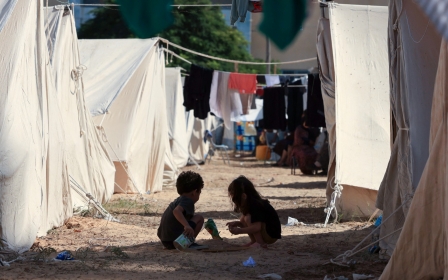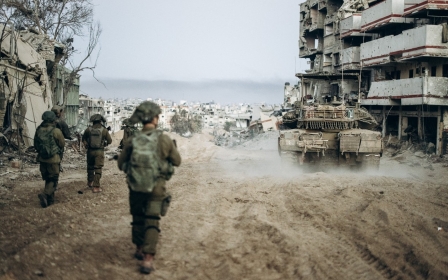Three US soldiers killed in drone attack on US forces near Jordan-Syria border

Three US service members were killed and many wounded during an unmanned aerial drone attack on US forces stationed in northeastern Jordan near the Syrian border, President Joe Biden said on Sunday, blaming Iran-backed groups for the attack.
"While we are still gathering the facts of this attack, we know it was carried out by radical Iran-backed militant groups operating in Syria and Iraq," Biden said in a statement.
A Jordanian government spokesperson said that the attack did not take place on Jordanian soil, but instead, the attack hit al-Tanf base in Syria.
"The base is outside our border," the Jordanian spokesperson said on Jordan TV, the kingdom’s public broadcaster.
The deaths marked the first fatalities of US troops in the region since war began in Gaza. Biden said the attack occurred on Saturday night.
New MEE newsletter: Jerusalem Dispatch
Sign up to get the latest insights and analysis on Israel-Palestine, alongside Turkey Unpacked and other MEE newsletters
"We will carry on their commitment to fight terrorism. And have no doubt - we will hold all those responsible to account at a time and in a manner of our choosing," Biden said in his statement released by the White House.
A statement from US Central Command (Centcom) said that 25 service members were injured.
"As a matter of respect for the families and in accordance with [Defense Department] policy, the identities of the servicemembers will be withheld until 24 hours after their next of kin have been notified," the statement said.
There has been increasing concern in Jordan about Israel's war in Gaza spreading. Late last year, Amman asked Washington to deploy Patriot air defense systems to bolster its border defense.
It has requested more aid to tackle drones used in a raging multibillion-dollar drug war along the border with Syria, which Amman blames on pro-Iranian militias who hold sway in southern Syria.
The kingdom has hundreds of US trainers in the country and holds extensive exercises with US troops throughout the year.
Iran's 'axis of resistance'
Responding to US support for Israel's bombardment of the Gaza Strip, in recent months Shia militias in the region have have intensified attacks on US military bases in Iraq and neighbouring Syria.
In late October, the US carried out air strikes against two weapons and ammunition storage facilities in eastern Syria used by Iran's Revolutionary Guards. Secretary of Defense Lloyd Austin said the strikes were in response to such attacks.
Speaking at the World Economic Forum in Davos earlier this month, Iranian Foreign Minister Hossein Amirabdollahian warned that Israel's bombardment and the US's continued support for it could result in a wider Middle East conflict.
Ending the Israeli offensive "will lead to an end of military actions and crises in the region," he said. Otherwise, he added, "all the fronts will remain active".
Amirabdollahian referred to these fronts as the "axis of resistance", a term for Iranian allies recently used by Hezbollah leader Hassan Nasrallah when offering similar warnings against Israel's continued bombing of the Gaza Strip.
Iran has been clear that such attacks are not conducted or planned by Iran, but rather by these "axis of resistance" allies, which make decisions based on their own assessments.
Still, Congressman Mike Waltz blamed what he called "Biden’s appeasement strategy towards Iran" for Sunday's attack.
"Tragic and preventable," he wrote in a social media post.
His fellow Republican Congress member Nick Langworthy called on Biden to "immediately hold Iran accountable for their terrorist proxies and reverse any standing sanctions waivers".
"This is the cost of weak leadership on the world stage," Langworthy wrote.
Middle East Eye delivers independent and unrivalled coverage and analysis of the Middle East, North Africa and beyond. To learn more about republishing this content and the associated fees, please fill out this form. More about MEE can be found here.




